Trump wants to buy Greenland again. Here’s why he’s so interested in the world’s largest island
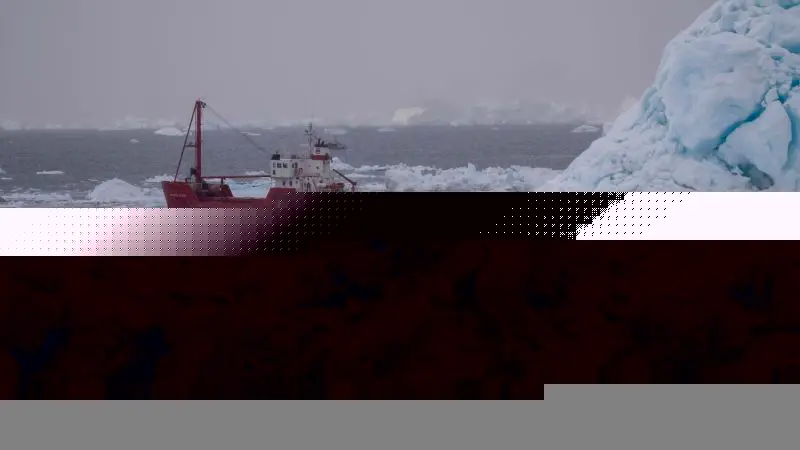
On Tuesday, Donald Trump Jr. landed in Greenland, the Arctic island his father, President-elect Donald Trump, has expressed a strong desire to purchase, despite sharp statements from Greenland that itis not for sale.
Trump Jr. framed the trip as “a little bit of fun,” telling CNN, “as an outdoorsman, I’m excited to stop into Greenland for this week.”
But the trip has fueled speculation about what exactly his father’s plans are for this Arctic territory.
In December, Trump revived calls made in his first presidency for US ownership of Greenland, calling it “an absolute necessity.” Asked at a Tuesday news conference whether he would rule out using “military or economic coercion” to gain Greenland — or Panama, which Trump has also expressed desire to own — the president-elect responded, “No, I can’t assure you on either of those two, but I can say this: We need them for economic security.”
The president-elect says owning Greenland is vital for US security, but experts say he may also be eyeing other aspects of Greenland such as its trove of natural resources — including rare earth metals — which may become more accessible as climate change melts the territory’s ice.
Greenland is the world’s largest island and home to more than 56,000 people. A former Danish colony and now an autonomous territory of Denmark, it occupies a unique geopolitical position, sitting between the US and Europe. Its capital city Nuuk is closer to New York than it is to Denmark’s capital Copenhagen.
It’s long been seen as key for US security, especially to repel a potential attack from Russia, said Ulrik Pram Gad, a senior researcher at the Danish Institute for International Studies. The Northwest Passage shipping lane runs along its coast and the island is part of the Greenland-Iceland-United Kingdom gap, a strategic maritime region.
Trump is not the first US president to float the idea of buying Greenland. In 1867, when President Andrew Johnson bought Alaska, he also considered purchasing Greenland. At the end of World War II, the Truman administration offered Denmark $100 million for the island, according to documents first reported on by Danish media.
Neither offer came to fruition, but under a 1951 defense treaty, the US got an air base now called Pituffik Space Base, in northwest Greenland. Midway between Moscow and New York, it’s the northernmost outpost of the US armed forces and is equipped with a missile warning system.
The US is keen to ensure “no hostile great powers control Greenland, because it can be a foothold for attacking the US,” Pram Gad told CNN.
What might be even more appealing to Trump, however, is Greenland’s rich deposits of natural resources, said Klaus Dodds, professor of geopolitics at Royal Holloway, University of London.
These include oil and gas, as well as the rare earth metals in high demand for the electric cars and wind turbines of the green transition, as well as for manufacturing military equipment.
Currently China dominates global rare earth production and has already threatened to restrict the export of critical minerals and associated technologies, ahead of Trump’s second term.
“There is no question at all that Trump and his advisers are very concerned about the stranglehold that China appears to have,” Dodds told CNN. Greenland offers a potentially rich source of these critical minerals, he added. “I think Greenland is really about keeping China out.”
Melting ice and rapidly rising Arctic temperatures are giving Greenland a front-row seat to the climate crisis, but some also see economic opportunities as climate change reshapes the country.
The loss of ice has opened up shipping routes, increasing the amount of time they can be navigated during the Northern Hemisphere summer. Arctic shipping rose 37% over the decade to 2024, according to the Arctic Council, in part due to melting ice.
“Trump, I think, instinctively gets the idea that the Arctic is melting,” and the perceived opportunities, Dodds said. Although he cautioned, in reality, conditions along these routes are still often treacherous, and melting ice may make waters even more dangerous to navigate.
There is also a suggestion that melting ice may make natural resources easier to access, but the climate crisis has not yet proved much of a “game-changer” for this, said Phillip Steinberg, a geography professor at the University of Durham.
It’s not that climate change is making Greenland’s resources more accessible, he told CNN, but rather “more necessary.”
The governments of both Denmark and Greenland have come out strongly against the idea the Arctic nation can be purchased.
“We are not for sale and will never be for sale. We must not lose our yearslong struggle for freedom,” Greenland’s Prime Minister Múte Egede wrote in a Facebook post in late December.
Kuupik V. Kleist, a former prime minister of Greenland, said Trump was talking more to US citizens than to Greenlanders. “I don’t see anything in the future that would pave the way for a sale. You don’t simply buy a country or a people,” he told CNN.
But Trump’s comments come at an interesting time for Greenland, Dodds said. Its Inuit-led government has recently been ramping up demands for independence from Denmark. In his new year address, Egede called for the “shackles of the colonial era” to be removed.
“It’s panicking Denmark,” Dodds said, which appears to have been focusing more on its relationship with Greenland. In December, Denmark announced a huge increase in military spending for Greenland. Then, at the start of January, the Danish royal family launched a redesigned royal coat of arms, increasing the prominence of the polar bear symbolizing Greenland.
Greenland has been looking to boost its independence by diversifying its economy away from fishing. It opened a new airport in Nuuk in November as part of plans to increase tourism. But it still relies on a roughly $500 million annual grant from Denmark, which has proved a big sticking point to independence.
This raises a very intriguing question, Dodds said. “What would Greenland do if Trump offered, say, $1 billion a year to have a different kind of association?”
Some Greenlandic politicians have been floating the idea of a special association, similar to the one the US has with the Marshall Islands, where Greenland has sovereignty but also financial support from the US, in exchange for agreements on certain US strategic interests.
Former Prime Minister Kleist expressed heavy skepticism this kind of association could work, however. “I don’t think either that (this) is of any interest. Just think of how the US have treated its own Indigenous Peoples.”
For now, it remains unclear how far Trump will pursue his stated desire to acquire Greenland once in office. “Nobody knows if it’s just bravado, if it’s a threat to get something else, or if it’s actually something that he wants to do,” said Pram Gad.
Why does Trump want Greenland and the Panama Canal so badly? One reason may surprise you
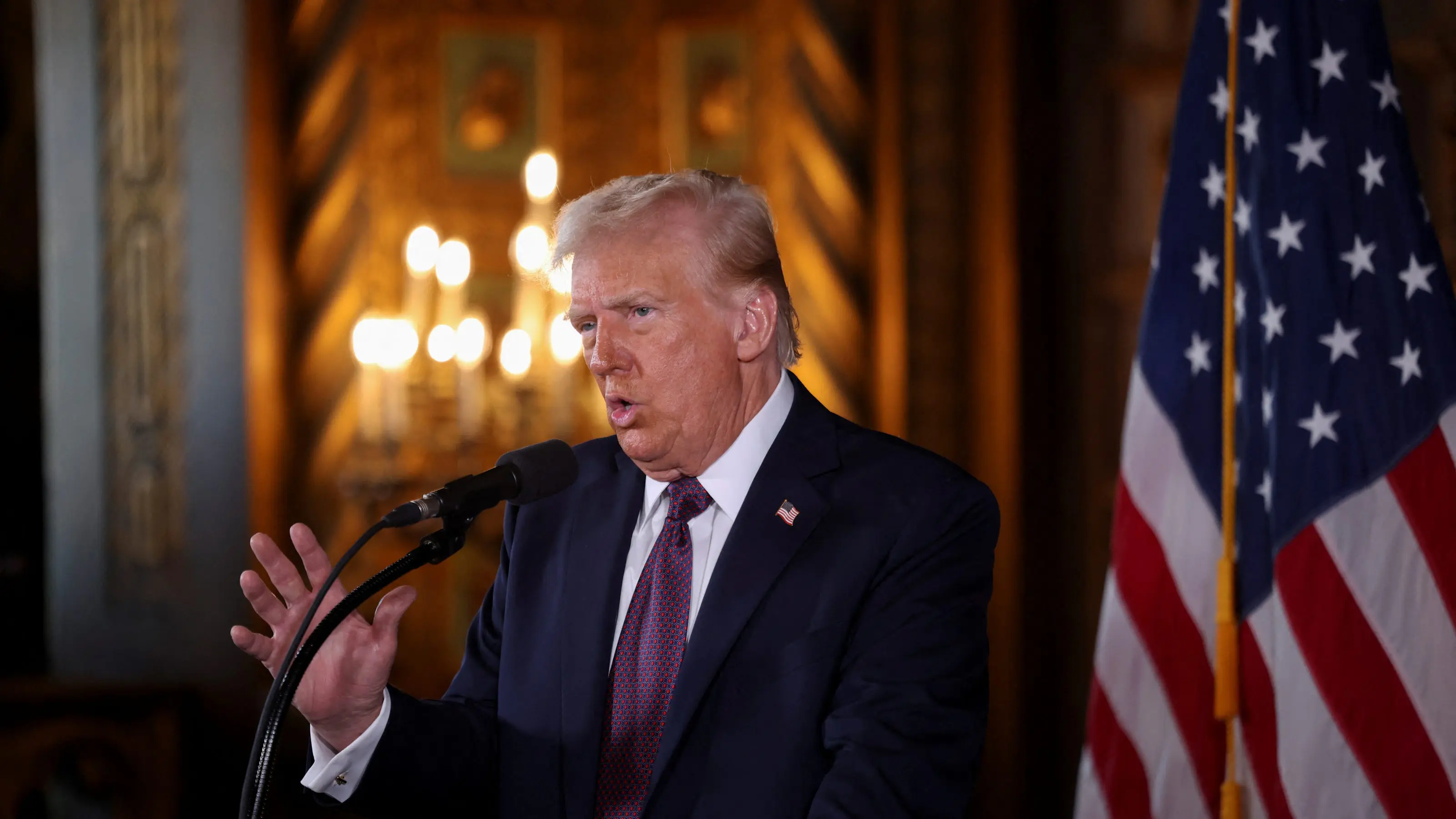
WASHINGTON -- Why is President-elect Donald Trump so committed to acquiring Greenland and the Panama Canal that he’d be willing to use military coercion to get them?
The short answer is that Trump is jockeying for geopolitical supremacy over what he believes are an expansionist-minded China and Russia, two former top Trump national security aides told USA TODAY.
But Trump’s concerns are also heavily influenced by something he often does not acknowledge – climate change, and its growing impact on U.S. national security.
Trump has had his eyes on the massive but remote arctic island since his first term. He doubled down on that – and his interest in the coast-to-coast Central American waterway that is the Panama Canal – in recent weeks as he prepares to take office.
On Tuesday, Trump went even further, refusing to rule out either military or economic coercion when it comes to taking control of the canal, which is owned and operated by Panama, and Greenland, a self-governing territory within the Kingdom of Denmark.
More:Trump refuses to rule out military force to acquire Greenland and the Panama Canal
“We need them for economic security,” Trump said at a news conference at his Mar-a-Lago estate in Palm Beach.
“The Panama Canal is vital to our country,” he said at one point. At another: “We need Greenland for national security purposes.”
When it comes to Greenland, Trump said he thinks Denmark “should give it up, because we need it for national security. … I'm talking about protecting the free world.”
“You look at you don't even need binoculars,” Trump added. “You look outside. You have China ships all over the place. You have Russian ships all over the place. We're not letting that happen.”
John Bolton, Trump’s point man on Greenland in his first administration, said American political leaders have been interested in gaining control of the island for more than a century.
“Trump didn't discover Greenland,” Bolton, who was also Trump’s first National Security Adviser, said in an interview. “The U.S. has been worried about it for a long time.”
To understand Trump’s interest in Greenland, Bolton said, just look at a map of the world from the vantage point of the North Pole.
Four NATO countries – the U.S., Canada, Denmark and Norway – have territorial claims that cover half of the Arctic Circle, Bolton said. “Russia covers the rest.”
The U.S. already has a military base on Greenland, but having more control of the entire island would enable Washington to better protect its interests in the region – including critically important shipping lanes – against expansionist efforts by Russia and, more recently, China.
China has become increasingly aggressive in the region as climate change reduces much of the impenetrable Arctic Circle ice to water, Bolton said. That makes the mythical Northwest Passage – a shorter shipping route between North America, Europe and Asia sought by explorers for 300 years -- now a reality.
The gradual opening of the Northwest Passage has allowed more and more military and commercial ships to cross over or near the North Pole in recent years, potentially reducing their voyages by thousands of miles.
“So who holds that defensive capability across the Arctic Circle is critical,” Bolton said, “especially with global warming making the famous Northwest Passage now something that's real, and with China's interest in becoming a global power.” Bolton said.
There is also the enormous bounty of precious resources believed to be buried under the ocean floor of the Arctic Circle, and on Greenland itself.
“It's never been explored. People thought it was covered with ice. But as the ice melts, just like the Russian tundra, who knows what's under there?” Bolton said.
In his first administration, Trump administration officials believed Greenland potentially had critically important “rare earth” resources that were now becoming harvestable thanks to ice melt driven by climate change.
Recovering them would make the U.S. far less reliant on China, which has much of the world’s stores of such materials used in computers, cellphones and other high-tech devices, according to Bolton and a second administration official, Charles Kupperman.
“I'm not an expert on that, but that's why do have a clear national security interest there,” Bolton said.
On Tuesday, Trump criticized former President Jimmy Carter for ceding control of the Panama Canal to the Panamanian government even though the U.S. spent vast sums of money and manpower to build the 51-mile waterway out of a mosquito-infested swamp.
Over the years, Trump said, China has virtually taken control of the strategic waterway, giving Beijing a huge economic and military advantage over Washington.
“We gave it away for $1 but the deal was that, you know, they have to treat us fairly. They don't treat us fairly. They charge more for our ships than they charge for ships of other countries. They charge more for our Navy than they charge for navies of other countries,” Trump said Tuesday.
Trump also claimed that the biggest beneficiary of that is China, which he said, “is basically taking it over.”
“China is running the Panama Canal,” Trump said, adding that it “makes a lot of money from one of the most profitable structures ever built, because you have ships lined up back to Florida, frankly, and they just keep going through and the numbers are staggering, half a million to a million dollars a ship.”
Trump didn’t mention it, but the reason for the ship backlog is, again, climate change.
According to a United Nations report from February, transits through the Panama Canal “have plummeted 49 per cent compared to its peak, due to dwindling water levels as a result of a severe, climate-change-induced drought.”
Kupperman, Trump’s deputy national security adviser in the first Trump administration, agreed that China’s massive investment in infrastructure at the canal poses a potential security threat to the U.S.
“The Chinese definitely have a strategy to create a large presence in the Western hemisphere. And it's not just in Panama, its throughout South America and other places as well,” Kupperman told USA TODAY.
More U.S. control or influence over the canal would not only help the incoming Trump administration counter China’s efforts to expand its influence throughout the Western hemisphere, but also benefit the U.S. in terms of global trade leverage and military strategy, Kupperman and Bolton said.
Kupperman first worked on Panama Canal issues for Ronald Reagan’s first Presidential campaign in 1980.
Back then, he said, Reagan defeated Carter, in part, by attacking his agreement to give control of the Canal to Panama.
“He said it’s our canal, we paid for it and Carter got rid of it,” Kupperman said. “So it was a political statement in 1980 and I think Trump's trying to resurrect the feelings that existed when the canal was first returned to Panama.”
Why does Trump want Greenland and could he get it?
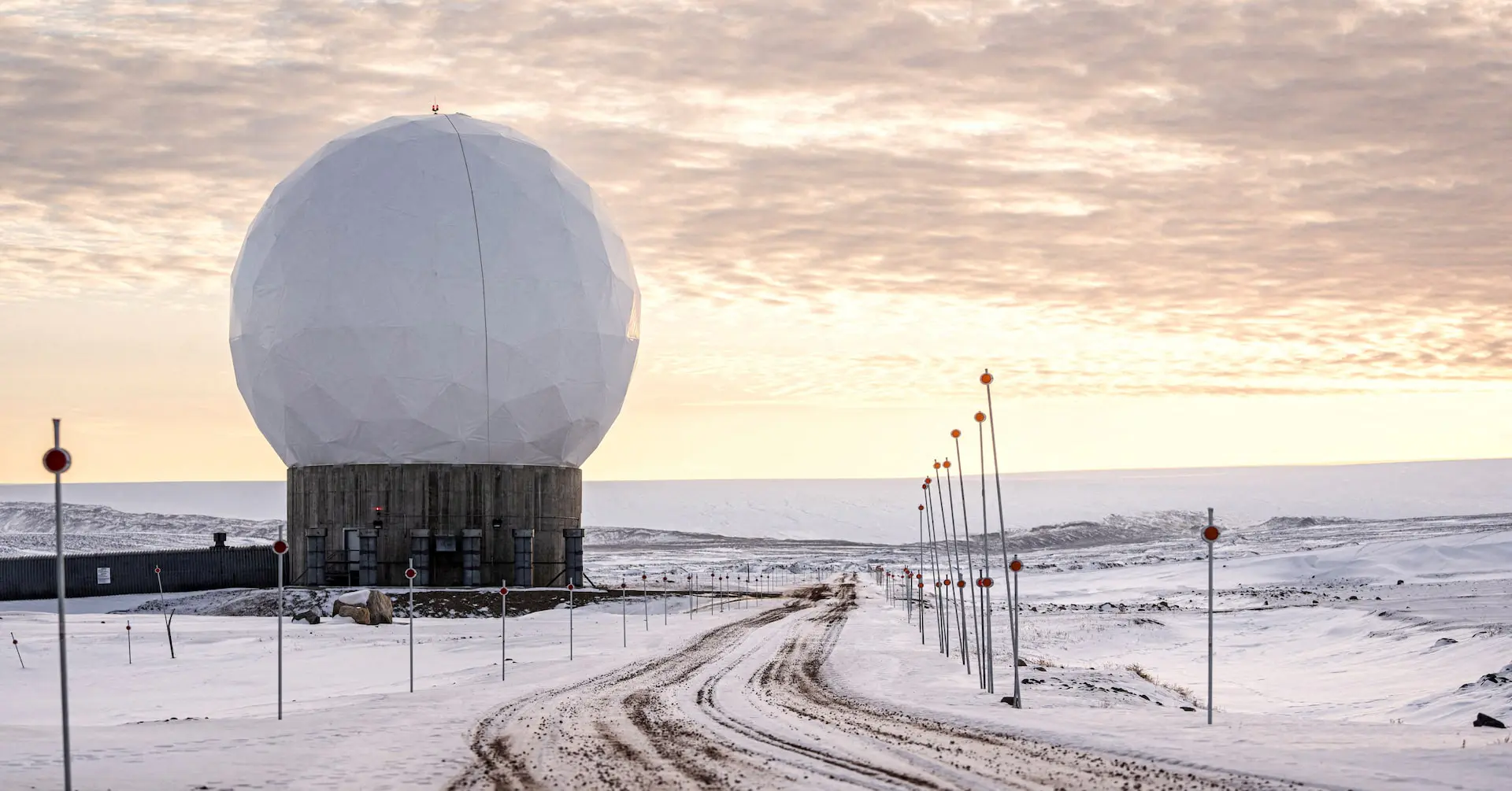
COPENHAGEN, Jan 8 (Reuters) - U.S. President-elect Donald Trump says he wants to make Greenland a part of the United States and does not rule out using military or economic power to get Denmark to hand over the mineral-rich and strategically important island.
"Greenland is an incredible place, and the people will benefit tremendously if, and when, it becomes part of our Nation," Trump said in a Truth Social post on Monday.
"This is a deal that must happen," Trump said on Tuesday as his son, Donald Trump Jr., paid a private visit to Greenland.
Trump first expressed interest in buying the mostly ice-covered island of just 57,000 people from Denmark in 2019 but was rebuffed.
Greenland, part of NATO through the membership of Denmark, has strategic significance for the U.S. military and for its ballistic missile early-warning system since the shortest route from Europe to North America runs via the Arctic island.
The U.S. military maintains a permanent presence at the Pituffik air base in Greenland's northwest.
The United States has expressed interest in expanding its military presence, including placing radars there to monitor the waters between the island, Iceland and Britain, which are a gateway for Russian navy vessels and nuclear submarines.
Greenland is geographically part of the North American continent, and it is vital for the United States to prevent any other major powers establishing a foothold on the island, according to Ulrik Pram Gad, a senior researcher and expert on Greenland at the Danish Institute for International Studies.
The island, whose capital Nuuk is closer to New York than the Danish capital Copenhagen, boasts mineral, oil and natural gas wealth, but development has been slow.
A 2023 survey showed that 25 of 34 minerals deemed "critical raw materials" by the European Commission were found in Greenland. They include significant quantities of materials used in batteries, such as graphite and lithium, and also so-called rare earth elements used in electric vehicles and wind turbines.
Greenland has banned extraction of oil and natural gas for environmental reasons, and development of its mining sector has been snarled in red tape and opposition from indigenous people.
This has kept Greenland's economy reliant on fishing, which accounts for over 95% of exports, and annual subsidies from Denmark, which cover roughly half of the public budget.
In total, Denmark spends just under $1 billion each year on Greenland.
Greenland has been part of Denmark for more than 600 years but now controls most of its own domestic affairs as a semi-sovereign territory under the Danish realm.
It became a formal territory of Denmark in 1953 and is subject to the Danish constitution, meaning any change to its legal status would require a constitutional amendment.
In 2009, the island was granted broad self-governing autonomy, including the right to declare independence from Denmark through a referendum.
Greenland Prime Minister Mute Egede, who has stepped up a push for independence, has repeatedly said the island is not for sale and that it is up to its people to decide their future.
Egede was holding talks in Copenhagen on Wednesday with King Frederik that are likely to be dominated by Trump's latest remarks.
In 2019 both Greenland and Denmark rejected Trump's offer to buy the island.
When Greenland was still a colony, the U.S. under then-President Harry Truman sought to buy the island as a strategic asset during the Cold War for $100 million in gold, but Copenhagen declined to sell.
If Greenland becomes independent, it could choose to become associated with the United States.
While the majority of Greenlanders want independence, few see full independence as viable given their economic dependence on Denmark, which is part of the affluent European Union.
One option could be to form a so-called "free association" pact with the United States, similar to the status of Pacific island nations Marshall Islands, Micronesia and Palau.
"Greenland is talking about becoming independent from Denmark, but no Greenlanders want to just switch to a new colonial master," said Ulrik Pram Gad, a senior researcher and expert on Greenland.
He finds it unlikely Greenland will vote for independence without ensuring the welfare of its population.
A majority of Greenland's inhabitants support independence, but are divided over the timing and potential impact on living standards.
Greenlandic politicians have since 2019 repeatedly said they are interested in strengthening cooperation and trade with the United States.
However, Aaja Chemnitz, a Greenlandic member of the Danish parliament, said the idea of a U.S. takeover should be firmly rejected. "I don't want to be a pawn in Trump's hot dreams of expanding his empire to include our country," she wrote.
The renewed interest comes amid heightened tensions between Greenland and Denmark, following revelations of historical misconduct by the former colonial ruler.
Trump's 2019 offer to buy the island was firmly rejected by Denmark, a close NATO ally of the United States, and labelled as "absurd" by Prime Minister Mette Frederiksen.
When asked about Trump's renewed interest on Tuesday, Frederiksen said: "We need very close cooperation with the Americans."
She added: "On the other hand, I would like to encourage everyone to respect that the Greenlanders are a people, it is their country, and only Greenland can determine and define Greenland's future."
Trump Wants Greenland: The Chaotic Online Reaction, Explained
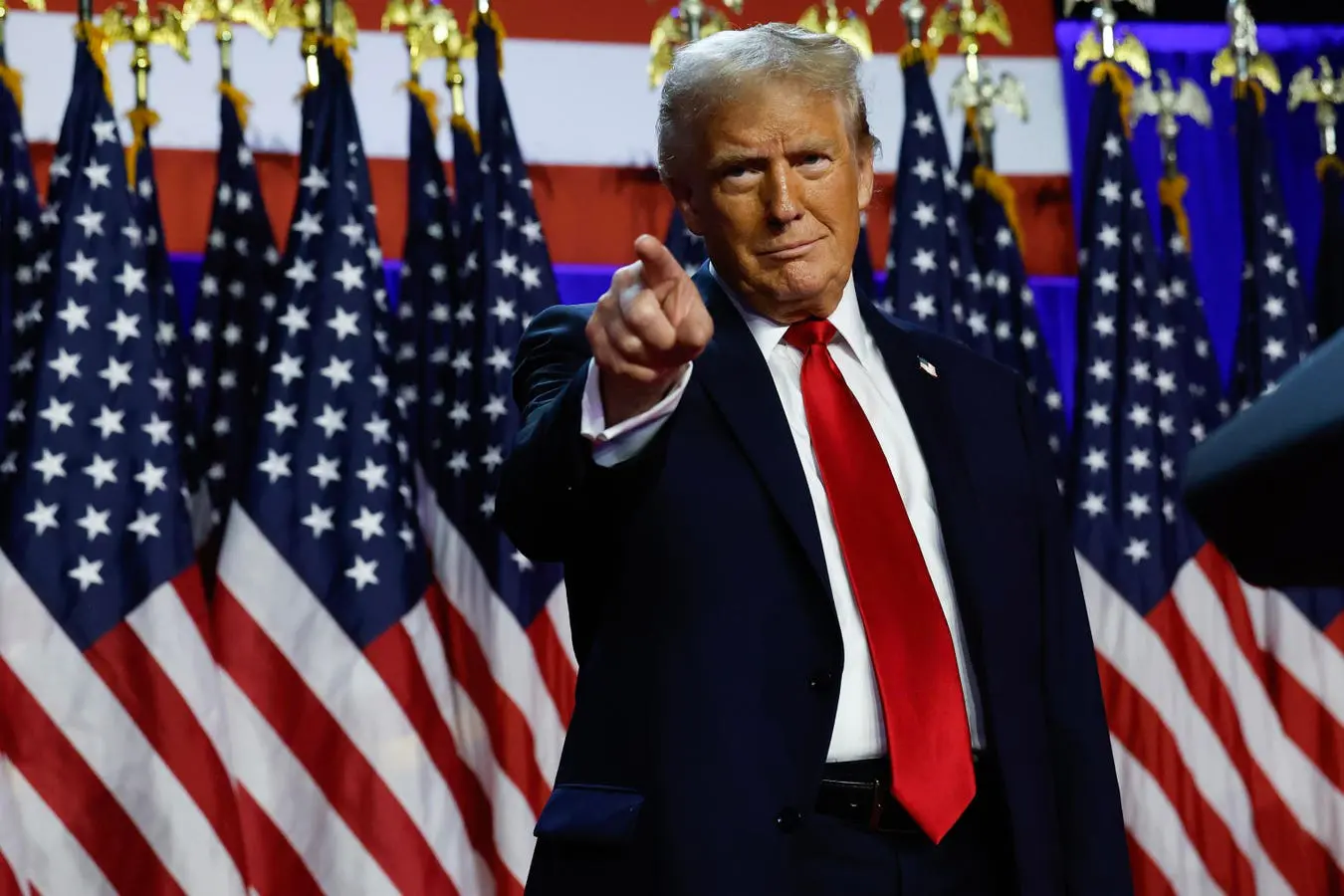
We’re barely into 2025 and we’re already in the midst of one of the strangest stories of recent times: President-elect Donald Trump wants to buy the nation of Greenland. He’s discussed this idea before, but following a visit to the country by his eldest son—Donald Trump Jr.—the issue has rocketed back to the top of the news cycle.
Unsurprisingly, the internet had some thoughts about Trump’s desire to buy Greenland, and has exploded with a series of jokes, memes and posts about the potential plan.
Despite some light-hearted social media posts like the above, there are huge tone variances in posts about Trump’s desire to buy Greenland. This wild and untamed online reaction displays an interesting side of the internet and meme culture, one that can actually assist people in comprehending and dealing with global events.
Before we arrive at that destination though, let’s take a quick step back.
A short note: This article isn’t focused on the national and international political ramifications of Donald Trump’s desire to buy Greenland, or even why he wants to do so. Instead, it’s looking at how people online have reacted to the story.
Still, to understand that, it’s valuable to give a short breakdown of what’s been happening recently.
Donald Trump Jr.—the eldest son of the President-elect—arrived in Greenland for a personal visit on Tuesday, January 7. Following this, Donald Trump himself stated in a news conference that “we need Greenland for national security purposes.”
The country, which is an autonomous territory of Denmark, has been a focus of Trump’s since his first term, when he asked his aides to explore what it’d take to purchase the nation.
The reasons behind Trump’s pursuit are numerous and, at times, unclear, but NPR sums up the consensus on why he wants Greenland as being access to the country’s vast resources of minerals and its strategic position in a geopolitical sense.
Now that we have a basic understanding of what’s happening, let’s look at how the online world has engaged with the story.
There are a range of different ways people have posted about the news. One common approach is an old standard: making memes. For example, this one crosses Barron Trump, the President-elect’s youngest son, with the Dune movie series:
While this one takes a tongue-in-cheek view of how Americans would act in Greenland:
The internet’s reaction to Trump wanting to buy Greenland goes further than simple jokes though. Some people express a more political opinion:
While some individuals are posting either passionately against it:
Or very much for it, like Charlie Kirk’s post from his visit to Greenland with Donald Trump Jr.:
One thing’s clear though: Social media is in uproar, with a tempest of activity around Trump’s Greenland idea that’s attracting millions and millions of engagements.
Let’s dig a little deeper.
The way the online world has responded to the story can be analyzed through two main lenses: a way of handling stress, and of digesting information.
Let’s begin with the first point, stress. For many, global events like Trump wanting to buy Greenland impact them directly and emotionally. Humans are evolved to live in small groups of around 150 people, and our reaction to stressful situations may still be based in part on this biological reality.
When something negative, impactful or stressful happens, our nervous systems’ natural reaction is the same as a physical threat: fight, flight or freeze.
While this might help if we’re, say, encountering danger in the wild, it’s not so useful when we’re on our phones reading about Trump wanting to buy Greenland. Our bodies can’t tell the difference between an actual threat and something that just feels dangerous.
This is where memes come in. Humor is a powerful stress reliever, and when people create, share and interact with jokes, it can help them move beyond this tension. When you can laugh at an event, like a political figure trying to purchase an entire nation, then, suddenly, the intense physical stress is lessened. It’s manageable.
Memes, then, help us control our emotions and handle events outside of our control—but they can do even more.
The second way memes help people in situations like Trump’s wish to buy Greenland is by streamlining thought. The rise of the internet and 24-hour news cycles means we have access to an unprecedented raft of data, something certain researchers refer to as an “information overload.”
The outcome of this is it’s impossible to have a firm grasp on everything that’s happening. Stories come so thick-and-fast that it’s hard to comprehend what each new narrative means—and that’s where memes come in.
Whether their statements are true or not, many people create posts and memes that succinctly sum up what they view as the key aspect of the narrative. When users come across these posts, like the one above, they feel they quickly have a grasp on the story and insight into what’s really happening.
Memes, of course, spread disinformation quickly through this exact same process, but it’s a core aspect of their operation: allowing the users a sense of comprehension before the next news story comes along.
On the surface, the online reaction to Trump wanting to buy Greenland seems wild and chaotic, with a deluge of people posting jokes, hot takes and sincere political stances. A step back, though, reveals a common thread running through them all.
Memes are more than jokes; they’re a way of communicating, of dealing with stress, and making the modern world a bit more manageable. We can see that happening in real time with the news of Trump trying to buy Greenland, and we’ll see it many more times in the future.
Denmark boosts Greenland defence after Trump repeats desire for US control
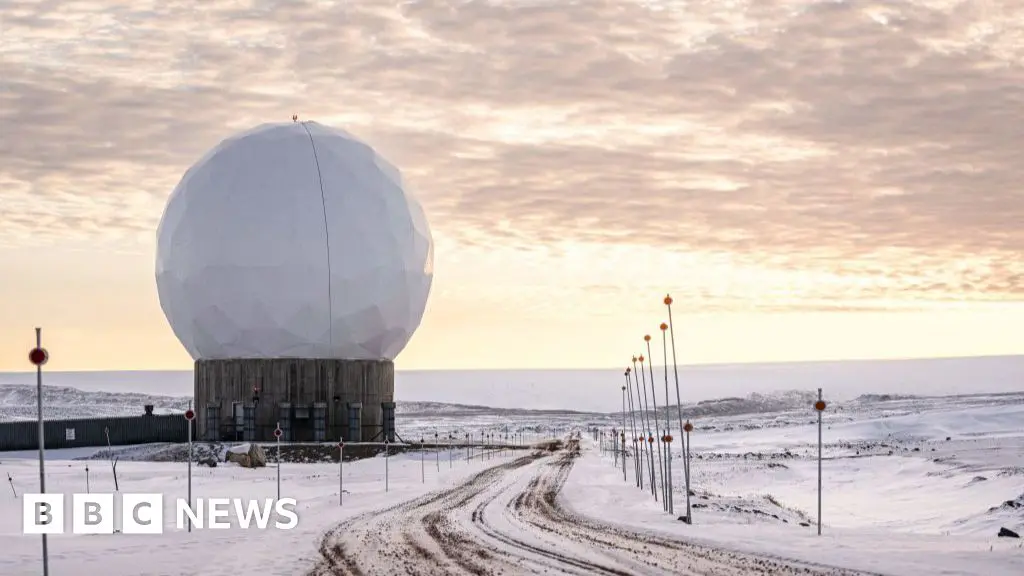
The Danish government has announced a huge boost in defence spending for Greenland, hours after US President-elect Donald Trump repeated his desire to purchase the Arctic territory.
Danish Defence Minister Troels Lund Poulsen said the package was a "double digit billion amount" in krone, or at least $1.5bn (£1.2bn).
He described the timing of the announcement as an "irony of fate". On Monday Trump said ownership and control of the huge island was an "absolute necessity" for the US.
Greenland, an autonomous Danish territory, is home to a large US space facility and is strategically important for the US, lying on the shortest route from North America to Europe. It has major mineral reserves.
Poulsen said the package would allow for the purchase of two new inspection ships, two new long-range drones and two extra dog sled teams.
It would also include funding for increased staffing at Arctic Command in the capital Nuuk and an upgrade for one of Greenland's three main civilian airports to handle F-35 supersonic fighter aircraft.
"We have not invested enough in the Arctic for many years, now we are planning a stronger presence," he said.
The defence minister did not give an exact figure for the package, but Danish media estimated it would be around 12-15bn krone.
The announcement came a day after Trump said on his social media platform Truth Social: "For purposes of National Security and Freedom throughout the World, the United States of America feels that the ownership and control of Greenland is an absolute necessity."
Greenland's Prime Minister Mute Egede responded to Trump's comments, saying "we are not for sale".
But he added that Greenlanders should continue to be open for cooperation and trade, especially with their neighbours.
Analysts say that the plan has been under discussion for a long time and should not be seen as a direct response to Trump's comments.
Until now Denmark has been very slow to expand its military capacity in Greenland, they say, but if the country is not able to protect waters around the territory against encroachments by China and Russia then US demands for greater control are likely to grow.
Army Maj Steen Kjaergaard of the Danish Defence Academy suggests it may have been Trump's intention to pressure Denmark into such a move.
"It is likely to be sparked by the renewed Trump focus on the need for air and maritime control around Greenland and the internal developments in Greenland where some are voicing a will to look towards the US – a new international airport in Nuuk was just inaugurated," he told the BBC.
"I think Trump is smart… he gets Denmark to prioritise its Arctic military capabilities by raising this voice, without having to take over a very un-American welfare system," he added, referring to Greenland's heavy dependence on subsidies from Copenhagen.
Trump's original suggestion in 2019 that the US acquire Greenland, which is the world's largest island, led to a similarly sharp rebuke from leaders there.
At the time Danish Prime Minister Mette Fredericksen described the idea as "absurd", leading Trump to cancel a state trip to the country.
He is not the first US president to suggest buying Greenland. The idea was first mooted during the 1860s under the presidency of Andrew Johnson.
Trump will not rule out force to take Panama Canal, Greenland
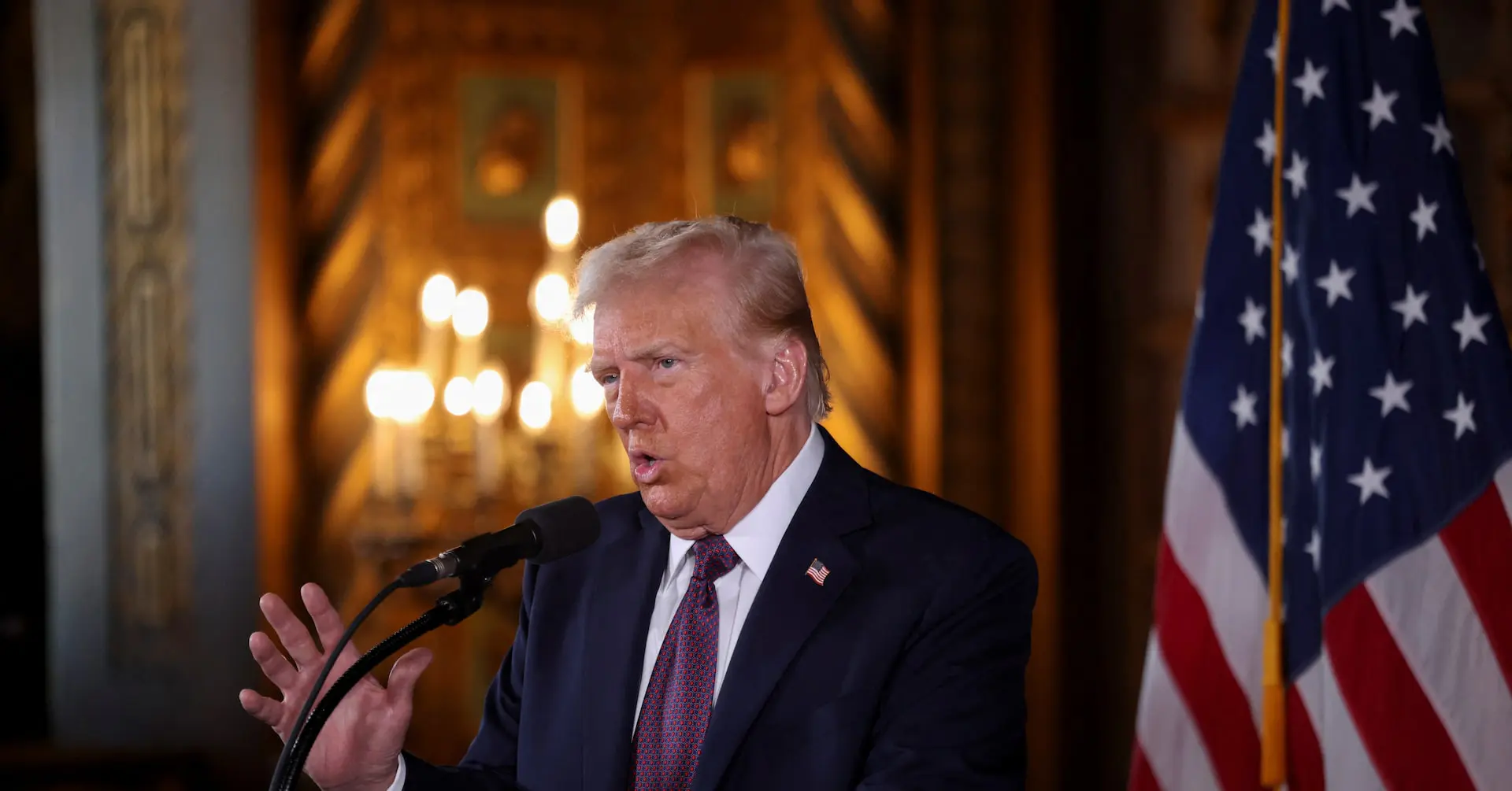
PALM BEACH, Florida, Jan 7 (Reuters) - U.S. President-elect Donald Trump refused on Tuesday to rule out using military or economic action to pursue acquisition of the Panama Canal and Greenland, part of a broader expansionist agenda he has promoted since winning the Nov. 5 election.
Trump, who takes office on Jan. 20, also floated the idea of turning Canada into a U.S. state, said he would demand far higher defense spending from NATO allies and promised to change the name of the Gulf of Mexico to the Gulf of America.
Still two weeks away from taking office, Trump has begun outlining an aggressive foreign policy with little regard to diplomatic considerations or the concerns of U.S. allies.
Asked at a press conference at his Florida resort whether he could assure the world he would not use military or economic coercion as he tries to gain control of the Panama Canal and Greenland, Trump said, "No, I can't assure you on either of those two. But I can say this, we need them for economic security."
Trump criticized American spending on Canadian goods and military support for Canada, saying the U.S. derives no benefits from doing so, and called the border between the two countries an "artificially drawn line."
He suggested he would impose tariffs on Denmark if it resists his offer to purchase Greenland, which he said is vital to U.S. national security. Shortly before Trump's comments, his son Don Jr. arrived in Greenland for a private visit.
Denmark has said Greenland, a self-governing part of its kingdom, is not for sale.
"I don't think it's a good way forward to fight each other with financial means when we are close allies and partners," Denmark's Prime Minister Mette Frederiksen said late on Tuesday in response to Trump's comments.
CANADA SAYS: 'WE WILL NEVER BACK DOWN'
Canada's minister of foreign affairs, Melanie Joly, said on X, "President-elect Trump's comments show a complete lack of understanding of what makes Canada a strong country. Our economy is strong. Our people are strong. We will never back down in the face of threats."
Panama's top diplomat also pushed back on the incoming U.S. leader's threat to retake the key global waterway, which the U.S. had built and owned before handing over control to the Central American nation in 1999.
"The only hands that control the canal are Panamanian and that's how it will continue to be," Foreign Minister Javier Martinez-Acha told reporters on Tuesday.
Ambassador Daniel Fried, a retired U.S. diplomat now with the Atlantic Council think tank, said Trump's comments painted a picture of national power as territorial expansion and compared him to a "19th century imperialist."
Seizing Greenland, Fried said, "would destroy NATO, because it would make us no different than Vladimir Putin," Russia's president.
Trump's promise to rename the Gulf of Mexico echoed his previous vow to revert the name of Denali, the highest mountain peak in North America, to Mount McKinley. Former President Barack Obama changed the name of the Alaskan mountain in deference to Native Americans.
Mexican Economy Minister Marcelo Ebrard, who is expected to play a key role in looming U.S.-Mexico trade issues, appeared to dismiss Trump's call to rename the shared body of water later on Tuesday.
"Today I'd tell you if we saw each other in 30 years, the Gulf of Mexico will still be called the Gulf of Mexico," he said, adding that the Mexican government would not get drawn into the debate.
Typically, the U.S. Board of Geographic Names sets geographic names, though presidents have also renamed geographic features via executive action.
Trump said NATO members should spend 5% of their gross domestic product on defense, a significant increase from the current 2% target.
"I think NATO should have 5%," he said. "They can all afford it, but they should be at 5%, not 2%."
Trump has frequently complained that most NATO members are not paying their fair share, and he floated demanding an increase in NATO defense contributions during the campaign.
NATO estimated that 23 of its 32 members would meet its goal of spending 2% of GDP in 2024.
None of the alliance members, including the U.S., currently spends 5% of GDP on defense, according to NATO figures. Poland is the highest spender in GDP terms at 4.12%, followed by Estonia at 3.43% and the United States at 3.38%.
Trump also repeated his threat that "all hell will break out in the Middle East" if Palestinian Hamas militants do not release by the time he takes office hostages it abducted from Israel on Oct. 7, 2023, and still hold in the Gaza Strip.
"It will not be good for Hamas, and it will not be good, frankly, for anyone," he said.
His Middle East envoy, Steve Witkoff, told reporters he hopes to have good things to report on negotiations between Israel and Hamas by the time Trump is sworn into office.
The free-wheeling, hour-long press conference, Trump's second since his victory, echoed similar events during his presidential campaign.
He aired a series of familiar grievances about his criminal indictments, including attacking Justice Juan Merchan, the New York judge who is scheduled to sentence Trump on Friday for falsifying business records in connection with hush money payments to a porn star.
A New York appeals court denied his latest bid to halt the sentencing shortly after his press conference ended.
Separately, as Trump was speaking, a U.S. judge temporarily blocked Special Counsel Jack Smith from releasing a report on his investigations into Trump's alleged mishandling of classified documents and attempts to overturn the 2020 presidential election.
The judge, Aileen Cannon, had previously dismissed the case charging Trump with illegally retaining classified materials after leaving office.
Tuesday's event took place in the ornate living room at Mar-a-Lago, Trump's Palm Beach resort. Several of Trump's senior advisers watched the proceedings, while club guests could be seen outside dining on the terrace.
Trump was also asked whether it was appropriate for Elon Musk to publicly weigh in on foreign affairs. In recent weeks, the billionaire Trump ally has used his X platform to comment on European politics, including expressing support for Germany's far-right Alternative for Germany.
"I can say Elon is doing a good job, very smart guy," Trump said. "I don't know the people you're talking about."
Donald Trump Jr arrives in Greenland after dad says US should own territory
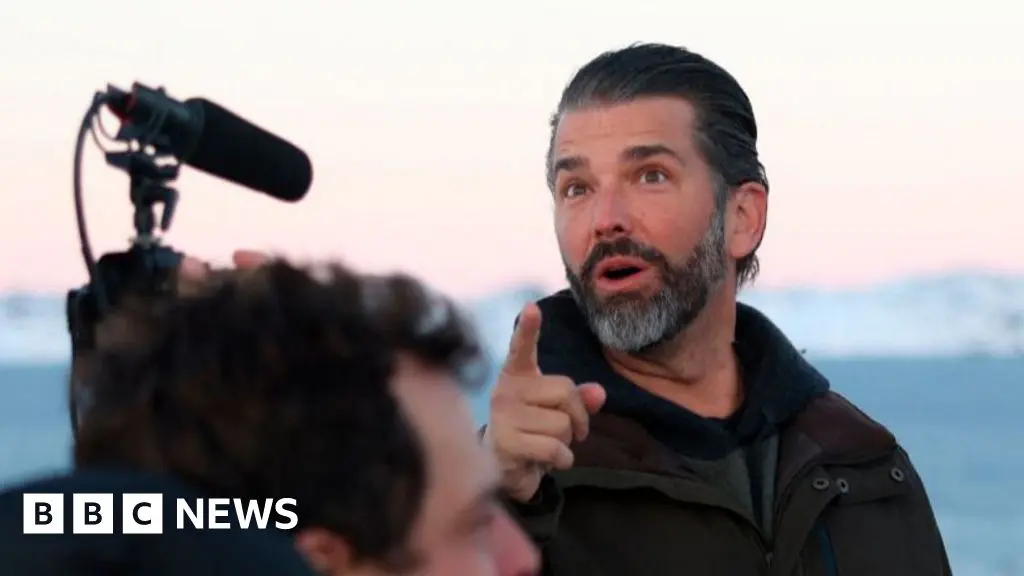
Donald Trump Jr has arrived in Greenland, weeks after his father said he wanted the US to take control of the autonomous Danish territory.
Ahead of his visit, Trump Jr said he was embarking on a "personal day-trip" and had no meetings planned with government officials.
President-elect Donald Trump recently revived a controversy he ignited last month when he said "ownership and control of Greenland is an absolute necessity" for the US. "We are not for sale," the island's prime minister responded at the time.
Asked on Tuesday whether he could rule out using military or economic force on the matter, Trump said he could not.
With a population of 57,000, Greenland has wide-ranging autonomy - but its economy is largely dependent on subsidies from Copenhagen and it remains part of the kingdom of Denmark.
During his first term as president, Donald Trump expressed an interest in buying the Arctic island. He was rebuffed then, as he has been now.
When asked about Trump Jr's visit to Greenland, Danish Prime Minister Mette Frederiksen told Danish TV that "Greenland belongs to the Greenlanders" and that only the local population could determine their future.
She agreed that "Greenland is not for sale", but stressed Denmark needed very close co-operation with the US, a close Nato ally.
Greenland's prime minister had been due to meet King Frederik in Copenhagen on Wednesday, but the meeting was postponed because of what Egede referred to as "calendar gymnastics". Danish reports said the prime minister was still due to travel to Copenhagen on Tuesday.
The Danish government's response to Trump Jr's visit has frustrated several opposition politicians in Copenhagen.
Conservative MP Rasmus Jarlov posted on social media in English that "this level of disrespect from the coming US president towards very, very loyal allies and friends is record-setting".
Following his son's arrival in Nuuk, President-elect Trump said on his Truth Social platform that "the reception has been great". Another post included a selection of images showing Trump Jr standing beside people wearing red Make America Great Again hats.
Trump said Greenland "and the Free World, need safety, security, strength, and peace!"
"Make Greenland great again!" he added.
Before leaving on board his father's private jet, nicknamed Trump Force One, 47-year-old Trump Jr said on his podcast Triggered: "No, I am not buying Greenland" - although he said he did love it there.
The president-elect's eldest son played a key role during the 2024 US election campaign, frequently appearing at rallies and in the media.
Another of his father's social media posts included a video featuring an unnamed Greenlander telling Trump to buy Greenland and free it from "being colonised" by Denmark.
The identity of the man in the clip was unclear, however Danish media reported that he had a jail conviction six years ago for drugs offences.
Greenland lies on the shortest route from North America to Europe, making it strategically important for the US. It is also home to a large American space facility.
Hours after President-elect Trump repeated his interest in buying Greenland last month, the Danish government announced a huge boost in defence spending for the island. Danish Defence Minister Troels Lund Poulsen described the announcement's timing as an "irony of fate".
On Monday, King Frederik X changed the royal coat of arms to more prominently feature representations of Greenland and the Faroe Islands.
Some have seen this as a rebuke to Trump, but it could also prove controversial with Greenland's separatist movement.
King Frederik used his New Year's address to say the Kingdom of Denmark was united "all the way to Greenland", adding "we belong together".
But Greenland's prime minister used his own New Year's speech to say that the island must break free from "the shackles of colonialism".
Trump is not the first US president to suggest buying Greenland. The idea was first mooted by the country's 17th president, Andrew Johnson, during the 1860s.
Separately in recent weeks, Trump has threatened to reassert control over the Panama Canal, one of the world's most important waterways. He has accused Panama of charging excessive fees for access to it.
Panama's president responded by saying "every square metre" of the canal and surrounding area belonged to his country.
Donald Trump Jr. arrives in Greenland with a message from his dad: ‘We’re going to treat you well’
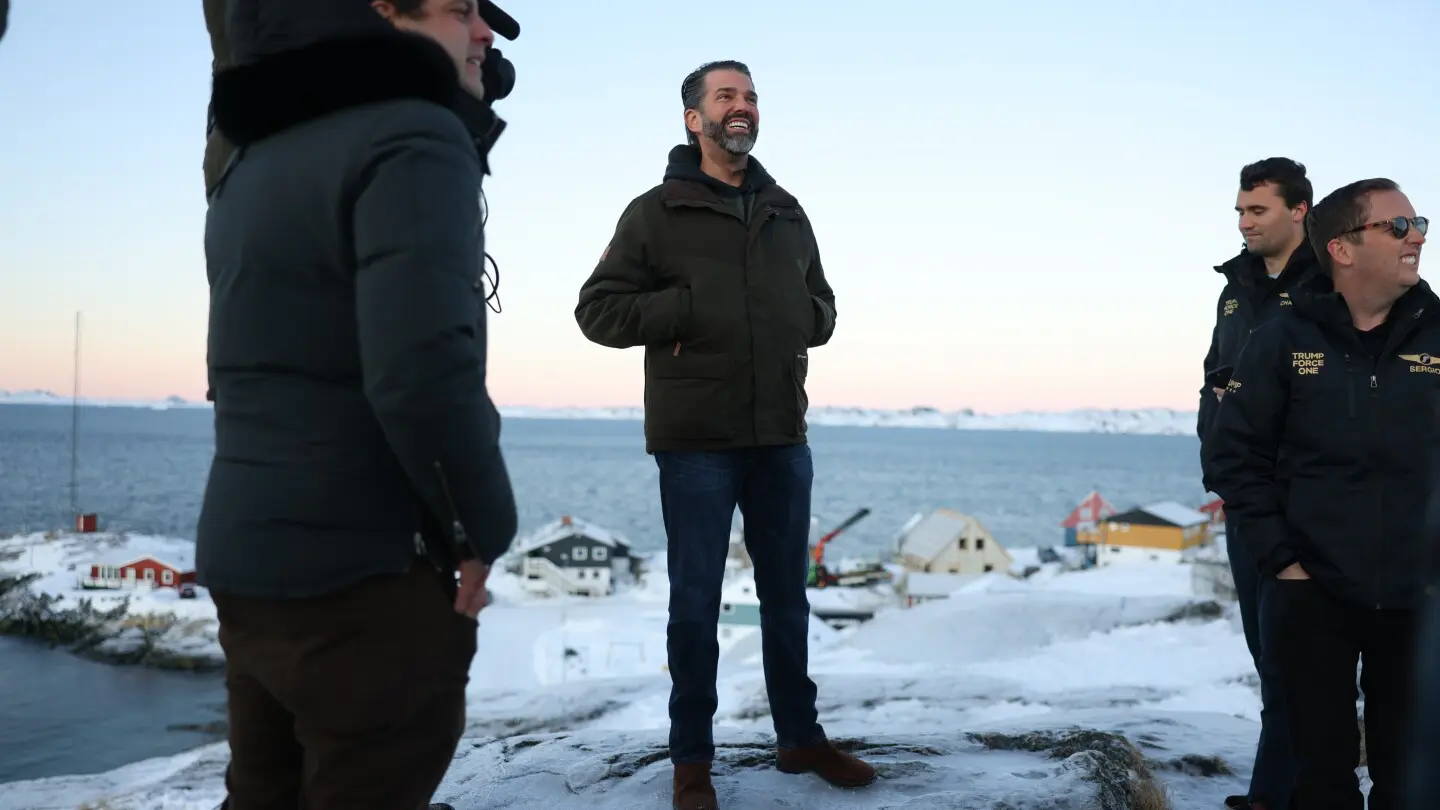
President-elect Donald Trump told residents of Greenland that “we’re going to treat you well” as his oldest son visited the mineral-rich Danish territory that’s home to a large U.S. military base, heightening speculation that the incoming U.S. administration could seek to acquire it.
The president-elect later told a news conference he wouldn’t rule out using military force or economic coercion to take control of Greenland, saying that “we need it for national security.”
Earlier, the president-elect posted a video showing a TRUMP-emblazoned plane landing in Nuuk, the Arctic territory’s capital, in a landscape of snow-capped peaks and fjords.
“Don Jr. and my Reps landing in Greenland,” Trump wrote. “The reception has been great. They, and the Free World, need safety, security, strength, and PEACE! This is a deal that must happen. MAGA. MAKE GREENLAND GREAT AGAIN!” Supporters later posted video of Trump speaking by phone to locals.
In a statement, Greenland’s government said Donald Trump Jr.’s visit was taking place “as a private individual” and not as an official visit, and Greenlandic representatives would not meet with him.
Trump Jr. was in Greenland for a day trip to shoot video content for podcasting, according to a person familiar with the plans who was not authorized to speak publicly. Trump’s eldest son has become a prominent player in his father’s political movement and has served on his presidential transition team.
Mininguaq Kleist, permanent secretary of the ministry of statehood and foreign affairs, told The Associated Press that authorities were informed that Trump Jr. would stay for about four to five hours. Neither Trump Jr.’s delegation nor Greenlandic government officials had requested a meeting, Kleist said.
The visit nonetheless had political overtones. The president-elect has voiced a desire — also expressed during his first presidency — to acquire the territory in the Arctic, an area of strategic importance for the U.S, China, Russia and others.
Danish Prime Minister Mette Frederiksen said Tuesday that the future of Greenland would be decided by Greenland, and called the United States Denmark’s most important ally. “Greenland is not for sale,” Frederiksen said, adding that “we need to stay calm and stick to our principles”
The world’s largest island, Greenland sits between the Atlantic and Arctic oceans and is 80% covered by an ice sheet. The autonomous territory has some 56,000 residents, most of them Indigenous Inuit people.
Greenland’s Prime Minister Múte Egede has called for independence from Denmark, saying in a New Year’s speech that it would be a way for Greenland to free itself from its colonial past. But Egede has also said he has no interest in Greenland becoming part of the United States, insisting that the island is not for sale.
Independence has become a key issue ahead of an election for the Greenlandic parliament. A date hasn’t been set, but it must take place no later than April 6.
Aaja Chemnitz, a Greenlandic member of the Danish parliament, told the AP she has no interest in Greenland becoming part of the U.S. and said she hears the same sentiment from her constituents.
“Most people don’t want it,” she said. “I think some people find it quite disrespectful. And the way it has been done, and just the fact that you’re saying that you can buy another country.”
A former colony of Denmark, Greenland in 1979 gained self-rule, which is exercises through its parliament. Copenhagen still exercises control over Greenland’s foreign and defense policy. A treaty with the United States, with the U.S. base, also gives Washington say over the territory’s defense.
Denmark’s King Frederik X has been asserting the kingdom’s rights to Greenland as well as the Faroe Islands, a self-governing archipelago located between Iceland and Norway in the North Atlantic Ocean. The king’s power is mostly symbolic.
Last month, the king by royal decree changed Denmark’s coat of arms to include fields that represent Greenland and the Faroe Islands. Greenland is represented by a silver bear with red tongue. The royal announcement noted that since 1194, the royal coat of arms “visually symbolized the legitimacy and sovereignty of the state and the monarch.”
“We are all united and each of us committed for the Kingdom of Denmark,” the king said in his New Year’s address, adding: “all the way to Greenland.”
The idea of the U.S. purchasing Greenland — located near the North American landmass — is not new, with early attempts in the late 19th century.
During his first term, Trump mused about purchasing Greenland. He canceled a scheduled trip to Denmark in August 2019 after the prime minister dismissed the idea.
Reviving the issue in a statement last month as he announced his pick for U.S. ambassador to Denmark, Trump wrote: “For purposes of national security and freedom throughout the world, the United States of America feels that the ownership and control of Greenland is an absolute necessity.”
Why Trump's pursuit of Greenland could be cheered on by Russia
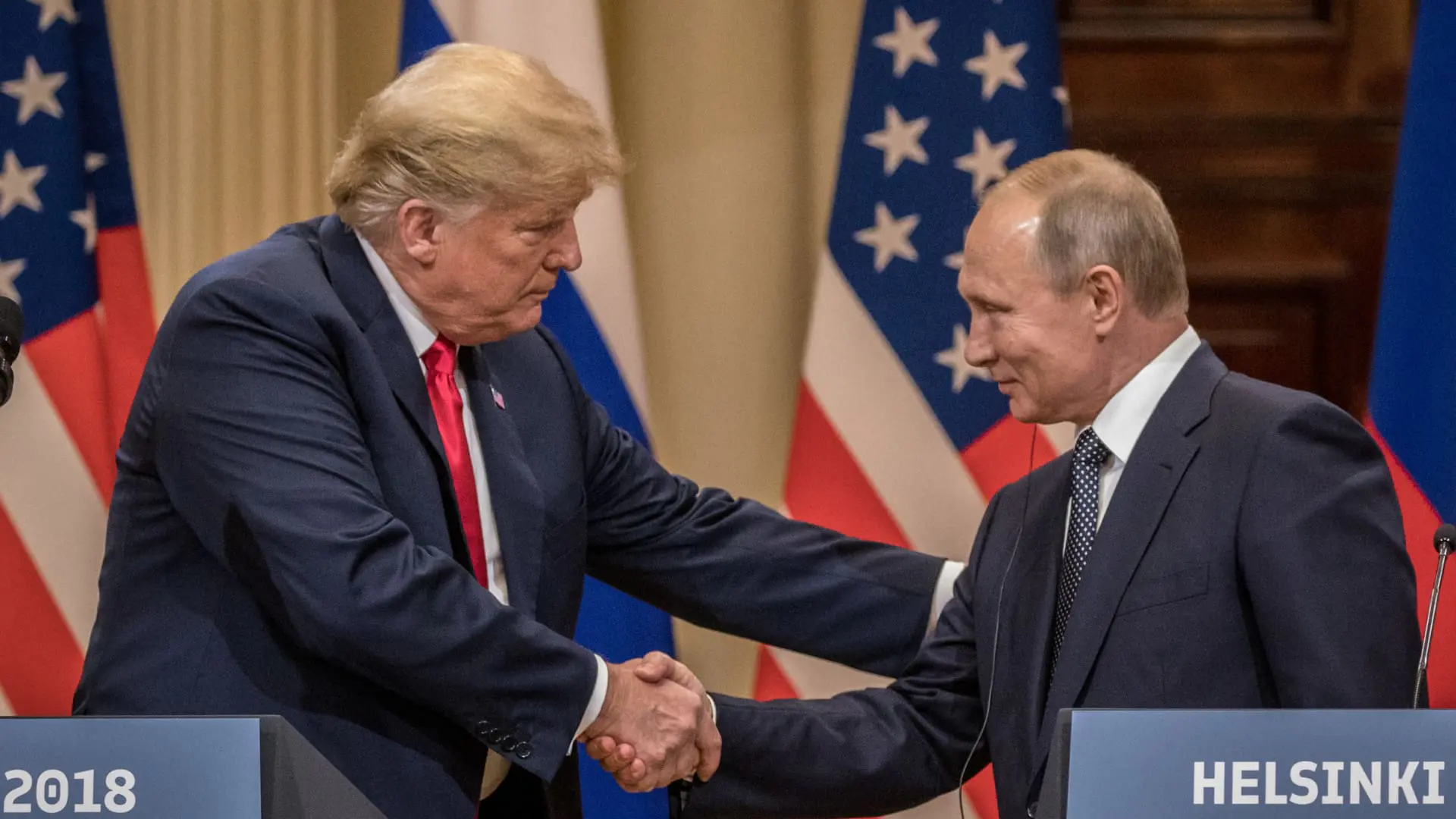
U.S. President-elect Donald Trump's ongoing pursuit of Greenland may have raised the hackles of Denmark, which retains sovereignty over the Arctic island, but his territorial ambitions seem to be gaining traction in an unlikely quarter: Russia.
High-profile political pundits close to Russian President Vladimir Putin have already voiced their support for Trump's re-stated ambition to buy Greenland and expand U.S. territory to include the resource-rich island — commenting that such a move would validate every other country's expansionist territorial ambitions, and most importantly, Russia's.
Trump said on his social media platform Truth Social in December that he saw "ownership" of Greenland as essential for the U.S.' economic and national security, restating a bid for the island that he made in his first term as president.
On Tuesday, Trump doubled-down on those comments and said he would not rule out using force to take Greenland, as well as the Panama Canal. Trump has also mooted the idea of turning Canada into the 51st state and to change the name of the Gulf of Mexico to the Gulf of America.
Trump's comments were condemned in Europe, with France's Foreign Minister Jean-Noel Barrot stating Wednesday the European Union would not tolerate attacks on its sovereign borders.
The president-elect's position has found favor in Moscow, however, with largely positive coverage by Russian state media and political figures.
Russian TV presenter and Kremlin ally Vladimir Solovyov, hosting a debate on Trump's pronouncements on his primetime show, said Trump's position essentially gave Moscow the right to demand the restoration of its own former Soviet empire, including the Baltic nations of Estonia, Lithuania and Latvia.
Other pro-Kremlin pundits on the panel said Trump's ambitions validated Russia's decision to launch its own "special military operation" against Ukraine. Kremlin propagandist Solovyov, an ardent supporter of Russia's full-scale invasion of Ukraine, commented that "what Trump is doing benefits us greatly," adding that the president-elect was "totally destroying any illusions that anyone might have still had about the summit of democracies, about respecting opinions of NATO allies."
"It's like he's saying, "Who are all of you? You're all nobodies. I will talk to Putin and Xi Jinping. As for you, who are you? Deliver Greenland. He is a great guy, an awesome guy," he added.
CNBC has contacted the Kremlin for comment on Trump's position and is awaiting a reply.
It's highly likely that Russia's leadership is looking with interest at Trump's proposals — however feasible or not they might be — with interest, analysts say. After all, they note, Russia has already shown with its 2022 invasion of Ukraine that it's willing to violate international law and territorial sovereignty in order to achieve its own geopolitical ambitions.
"Russian propagandists and Russian state media are very happy to bathe in the news of Trump's extraterritorial threats and desires for unilateral aggression, because those are, of course, things that they themselves have trumpeted when Vladimir Putin has pursued them," Max Hess, fellow at the Foreign Policy Research Institute and author of "Economic War: Ukraine and the Global Conflict Between Russia and the West," told CNBC Wednesday.
Close followers of Russian politics say Trump's position could spur on Russia's leadership as it validates potential further attempts to expand Russia's sphere of influence and power.
"The West has argued that Putin's invasion of Ukraine and territorial land grab is illegal, and defies international law. The same message has been sent to Israel over expanding settlements. And the message to China has been not to view Russia's invasion of Ukraine as a green light for a similar invasion of Taiwan — they should assume serious international consequences," Timothy Ash, emerging markets strategist at BlueBay Asset Management, said in emailed comments Wednesday.
"Trump's pantomime performance though yesterday sent a clear message that great powers do have 'spheres of influence', or they do according to Trump — which aligns with Putin's view of the world," Ash added, warning that Trump had greatly undermined NATO with his comments.
The Kremlin has not made any official comment on Trump's comments regarding Greenland, which is located between the Arctic Ocean and the North Atlantic Ocean, but is likely to be watching developments closely given its own interests in the Arctic, a region where it has expanded its own political, economic and military influence in recent decades.
Greenland is an autonomous territory within the Kingdom of Denmark but has links to the U.S., with American military installations constructed on the island following World War II. During the war, Denmark was occupied by Nazi Germany, prompting Copenhagen and the U.S. to sign an agreement in 1941 to give the U.S. control of Greenland's defense.
Denmark has been vociferous in its opposition to Trump's ambition to acquire the island, with Danish Prime Minister Mette Frederiksen describing the idea as "absurd" when Trump first mooted it in 2019.
That sentiment was reiterated by Greenland following Trump's comments in December, with Prime Minister Mute Egede saying: "We are not for sale and we will not be for sale" and that "Greenland belongs to the people of Greenland."
Trump's pronouncements appeared to have rattled Denmark, however, and it has sought to stamp its authority on, and ownership of, the island in recent weeks.
Hours after Trump's comments in December, Copenhagen announced it would increase defense spending on Greenland to give it a "stronger presence in the Arctic." It was then announced Monday that Denmark's King Frederik X had updated his historic coat of arms to give Greenland and the Faroe Islands greater symbolic prominence and to assert them as a central part of the Danish realm.
Apparently undeterred by Greenland and Denmark's cold shoulder, Trump announced Monday that his son Donald Trump Jr. was making an impromptu visit to the island.
Confirming the visit on Truth Social, Trump said: "My son, Don Jr, and various representatives, will be traveling there to visit some of the most magnificent areas and sights. Greenland is an incredible place, and the people will benefit tremendously if, and when, it becomes part of our Nation. We will protect it, and cherish it, from a very vicious outside World. MAKE GREENLAND GREAT AGAIN!," Trump said.
Danish broadcaster DR reported that Donald Trump Jr. arrived in Greenland on Tuesday but said no meetings were set to take place with members of the government.
The Danish foreign ministry told NBC News: "We have noted the planned visit of Donald Trump Jr. to Greenland. As it is not an official American visit, the Ministry of Foreign Affairs of Denmark has no further comment to the visit."
Trump won't rule out military action to take control of Greenland as son visits
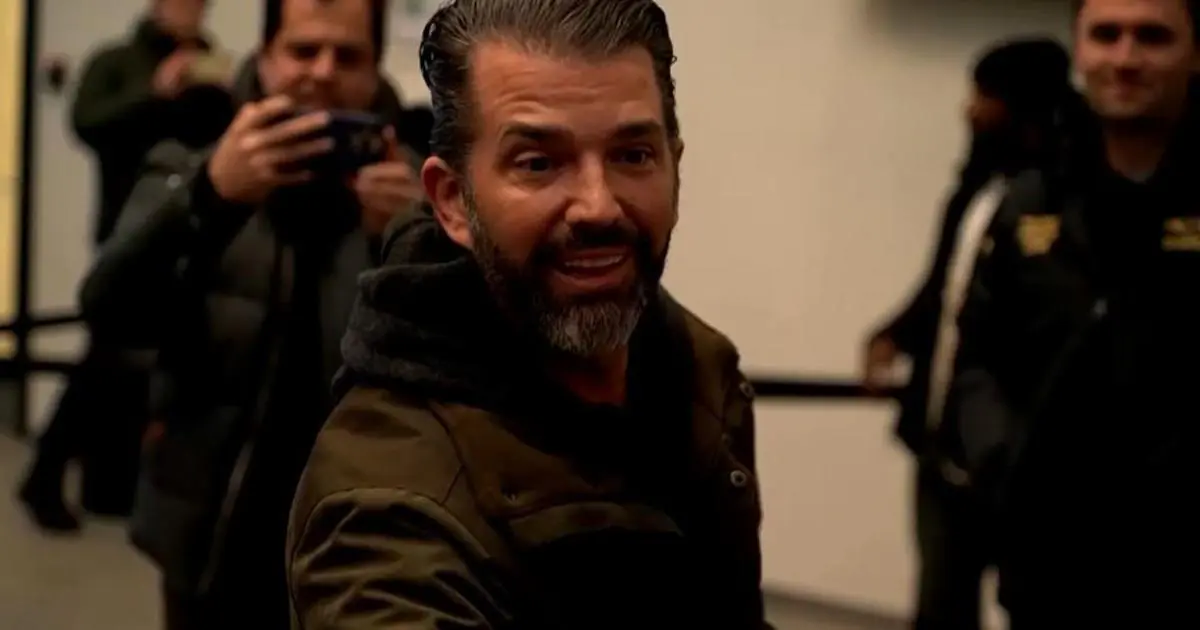
President-elect Donald Trump on Tuesday wouldn't rule out exercising military or economic coercion to further his goal of bringing both Greenland and the Panama Canal under U.S. control, as his son, Donald Trump Jr., is in Greenland amid Trump's push to acquire the autonomous territory of Denmark.
"I can't assure you, you're talking about Panama and Greenland," Trump told reporters during a press conference at his Mar-a-Lago estate in Florida. "No, I can't assure you on either of those two. But I can say this — we need them for economic security."
Danish Prime Minister Mette Frederiksen rejected Trump's designs on Greenland but said she'd continue to welcome American interest and investment, in light of Trump Jr.'s visit.
"I, of course, hope that Trump Jr. will have the opportunity to see Greenland and visit the magnificent country," Frederiksen said in a TV interview Tuesday. "But it is also important to hold fast that the future of Greenland is defined by the Greenlanders, not by the rest of us."
"It is their country that we are talking about here, and it is Greenland that, in my eyes, can determine and define Greenland's future," she said. Frederiksen still considers the U.S. a valuable ally as Moscow and Beijing increase their cooperation.
"I would much rather have American investment and American interest than I want Russian or Chinese," she said. "On the other hand, I would like to encourage everyone to respect that the Greenlanders are a people, they are a population," Frederiksen said. "It is their country that is at stake here."
Trump Jr. arrived Tuesday in Greenland on his father's "Trump Force One" plane, weeks after his father again expressed a desire for the U.S. to gain control of the autonomous Danish territory. The visit comes just a day after Trump suggested the people of the vast region were "MAGA," in a post on social media.
"Just here as tourists," Trump Jr. told journalists as he walked into the airport in Greenland's capital city of Nuuk on Tuesday. "We've been talking about going for a while. I was actually supposed to be here last spring for some of the stuff I do in my free time, but just really excited to be here. Awesome country."
He was quickly asked about his father, who's stated a desire to make Greenland part of the U.S., but he replied only to say that the soon to be second-term president, "says hello."
"We were talking to him yesterday, so he says hello to everyone in Greenland," said Trump Jr.
Greenland has a population of about 57,000 and is a fully autonomous territory of the Kingdom of Denmark. It has oil, natural gas and mineral resources, but its economy is reliant on subsidies from Denmark and from fishing.
Still, Trump on Tuesday expressed doubt about Denmark's control of Greenland, despite Greenland's status as an autonomous territory.
"Nobody even knows if they have any right, title or interest," Trump said, inaccurately, of Denmark and Greenland.
"The visit of Donald Trump Jr. is a private visit and that is being respected by Naalakkersuisut — the Government of Greenland. Therefore, there will also not be reactions to the visit," Mininnguaq Kleist, Greenland's permanent secretary for the Ministry of Foreign Affairs, told CBS News ahead of his arrival on Tuesday. "Our country is open for visits, and visitors are welcome in our beautiful country."
Reuters, citing a source familiar with the trip, said Trump Jr. was planning to shoot content for a podcast, and that he would only be visiting for one day.
On Monday, President-elect Trump said in a social media post that he was, "hearing that the people of Greenland are 'MAGA.' My son, Don Jr, and various representatives, will be traveling there to visit some of the most magnificent areas and sights. Greenland is an incredible place, and the people will benefit tremendously if, and when, it becomes part of our Nation. We will protect it, and cherish it, from a very vicious outside World. MAKE GREENLAND GREAT AGAIN!"
Trump had expressed interest in buying Greenland during his first term in office, though the idea was quickly rebuffed by Danish authorities.
Two weeks ago, Trump said on social media that, "for purposes of National Security and Freedom throughout the World, the United States of America feels that the ownership and control of Greenland is an absolute necessity."
Greenland's government has twice rebuffed assertions of interest in the territory by Trump, with Prime Minister Mute Egede saying just before Christmas that "Greenland is ours. We are not for sale and will never be for sale."
Last week, Egede gave a New Year's speech pushing for Greenland to remove "the shackles of colonialism" and gain full independence from Denmark.
"It is about time that we ourselves take a step and shape our future, also with regard to who we will cooperate closely with, and who our trading partners will be," Egede said.
One Greenlandic lawmaker in Denmark's parliament, Aaja Chemnitz, said Trump's interest should be dismissed, Reuters reported.
"I don't want to be a pawn in Trump's hot dreams of expanding his empire to include our country," Chemnitz said.
Greenland may become independent, but not a U.S. state, Denmark says
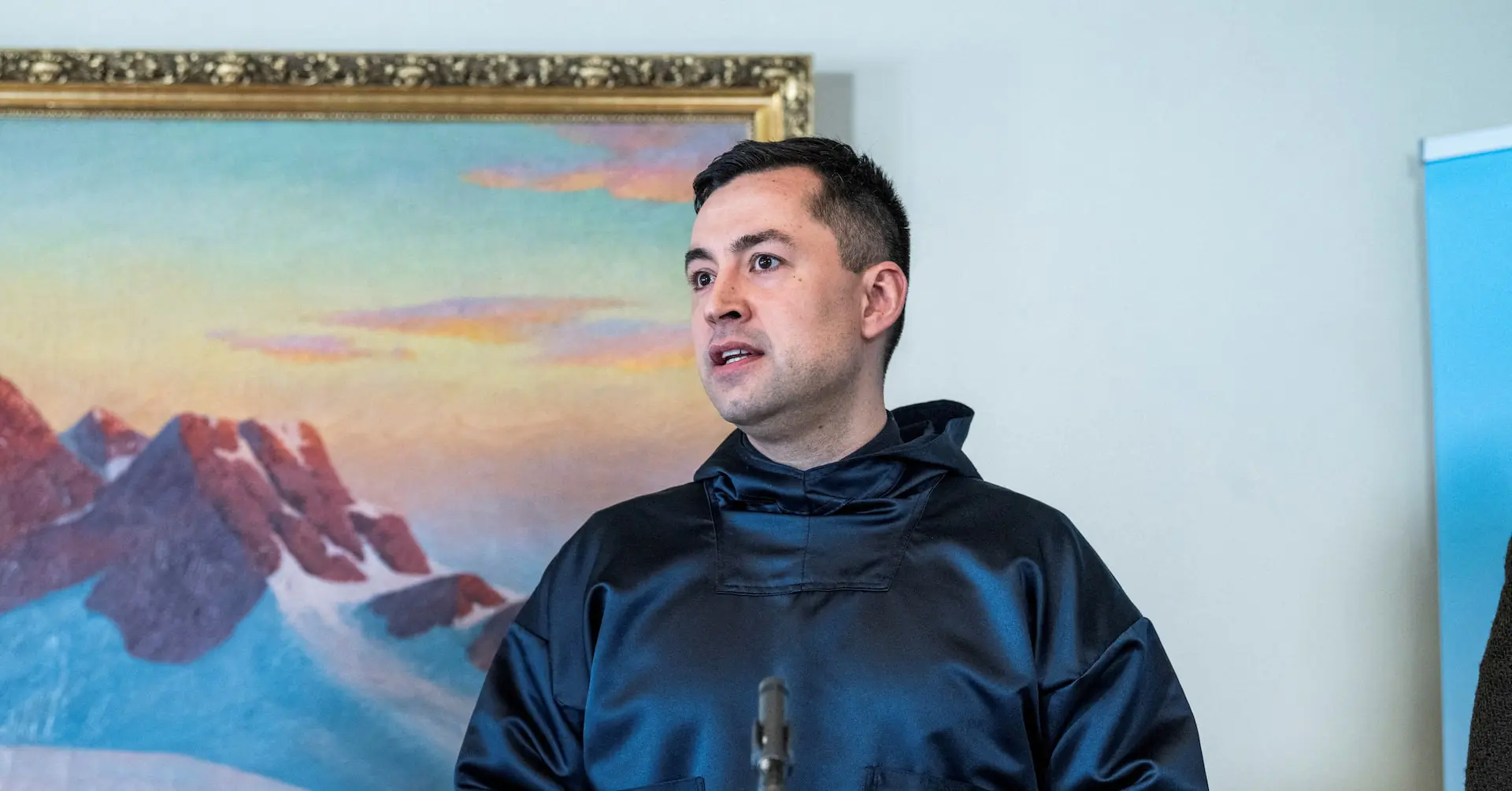
COPENHAGEN, Jan 8 (Reuters) - Greenland may become independent if its residents want, but it won't become a U.S. state, Denmark's foreign minister said on Wednesday after U.S. President-elect Donald Trump refused to rule out force to take control of the Arctic island.
Greenland's leader held talks on Wednesday with the Danish king in Copenhagen, a day after Trump's remarks thrust the fate of the Danish-ruled island to the top of world headlines.
Trump, who takes office on Jan. 20, said on Tuesday he would not rule out using military or economic action to make Greenland part of the United States. The same day, Trump's eldest son, Donald Trump Jr., made a private visit to Greenland.
Greenland, the world's biggest island, has been part of Denmark for 600 years although its 57,000 people now govern their own domestic affairs. The island's government led by Prime Minister Mute Egede aims for eventual independence.
"We fully recognise that Greenland has its own ambitions. If they materialise, Greenland will become independent, though hardly with an ambition to become a federal state in the United States," Danish foreign minister Lars Lokke Rasmussen said.
He told reporters the United States' heightened security concerns in the Arctic were legitimate following increased Russian and Chinese activity in the region.
"I don't think that we're in a foreign policy crisis," he said. "We are open to a dialogue with the Americans on how we can possibly cooperate even more closely than we do to ensure that the American ambitions are fulfilled."
Still, although Denmark itself played down the seriousness of Trump's threat to its territory, the returning president's openly stated ambition to expand U.S. borders has jolted European allies less than two weeks before he takes office.
France's foreign minister, Jean-Noel Barrot, said Europe would not let other nations attack its sovereign borders, although he did not believe the U.S. would invade. A German government spokesperson said Berlin stood by the principle that borders must not be changed by force. A spokesperson for the European Commission said the sovereignty of EU member states had to be respected.
Greenland's relations with Denmark have lately been strained by allegations of colonial-era mistreatment of Greenlanders. Egede has said the island is not for sale, while in his New Year speech he stepped up his push for independence. Denmark says the territory's fate can be decided only by Greenlanders.
Danish Prime Minister Mette Frederiksen said on Tuesday she could not imagine Trump's ambitions would lead to U.S. military intervention in Greenland. Denmark's military capabilities there are limited to four inspection vessels, a Challenger surveillance plane and dog sled patrols.
Responding to Trump's threat of tariffs against Denmark, Frederiksen said she did not think a trade war with the United States was a good way forward. Denmark is home to Novo Nordisk, Europe's most valuable company, which makes weight-loss drug Wegovy that has become hugely popular in the United States.
The Danish royal palace gave no details ahead of King Frederik's meeting in Copenhagen on Wednesday with Greenland's Prime Minister Egede.
While many Greenlanders dream of independence from Denmark, the king remains popular on the island, having spent extended periods there, including a four-month expedition on the ice sheet. Last month, the royal court modified its coat of arms, enlarging a polar bear that symbolises Greenland.
"I'm sure the king is really the person best placed in Denmark to deal with this issue right now because he has a long history with Greenland," Damien Degeorges, a Reykjavik-based consultant specialising in Greenland, told Reuters.
"He's popular in Greenland. So he can clearly be helpful to the Danish-Greenlandic relationship."
Trump already raised the issue of the U.S. taking over Greenland during his first presidency, but his latest remarks still left many Danes baffled.
"I find it extremely ridiculous," said Jeppe Finne Sorenson, a data engineer in the Danish capital. "We have an alliance, we're allies. So this doesn't really respect that."
Trump wants to buy Greenland again. Here’s why he’s so interested in the world’s largest island

On Tuesday, Donald Trump Jr. landed in Greenland, the Arctic island his father, President-elect Donald Trump, has expressed a strong desire to purchase, despite sharp statements from Greenland that itis not for sale.
Trump Jr. framed the trip as “a little bit of fun,” telling CNN, “as an outdoorsman, I’m excited to stop into Greenland for this week.”
But the trip has fueled speculation about what exactly his father’s plans are for this Arctic territory.
In December, Trump revived calls made in his first presidency for US ownership of Greenland, calling it “an absolute necessity.” Asked at a Tuesday news conference whether he would rule out using “military or economic coercion” to gain Greenland — or Panama, which Trump has also expressed desire to own — the president-elect responded, “No, I can’t assure you on either of those two, but I can say this: We need them for economic security.”
The president-elect says owning Greenland is vital for US security, but experts say he may also be eyeing other aspects of Greenland such as its trove of natural resources — including rare earth metals — which may become more accessible as climate change melts the territory’s ice.
Greenland is the world’s largest island and home to more than 56,000 people. A former Danish colony and now an autonomous territory of Denmark, it occupies a unique geopolitical position, sitting between the US and Europe. Its capital city Nuuk is closer to New York than it is to Denmark’s capital Copenhagen.
It’s long been seen as key for US security, especially to repel a potential attack from Russia, said Ulrik Pram Gad, a senior researcher at the Danish Institute for International Studies. The Northwest Passage shipping lane runs along its coast and the island is part of the Greenland-Iceland-United Kingdom gap, a strategic maritime region.
Trump is not the first US president to float the idea of buying Greenland. In 1867, when President Andrew Johnson bought Alaska, he also considered purchasing Greenland. At the end of World War II, the Truman administration offered Denmark $100 million for the island, according to documents first reported on by Danish media.
Neither offer came to fruition, but under a 1951 defense treaty, the US got an air base now called Pituffik Space Base, in northwest Greenland. Midway between Moscow and New York, it’s the northernmost outpost of the US armed forces and is equipped with a missile warning system.
The US is keen to ensure “no hostile great powers control Greenland, because it can be a foothold for attacking the US,” Pram Gad told CNN.
What might be even more appealing to Trump, however, is Greenland’s rich deposits of natural resources, said Klaus Dodds, professor of geopolitics at Royal Holloway, University of London.
These include oil and gas, as well as the rare earth metals in high demand for the electric cars and wind turbines of the green transition, as well as for manufacturing military equipment.
Currently China dominates global rare earth production and has already threatened to restrict the export of critical minerals and associated technologies, ahead of Trump’s second term.
“There is no question at all that Trump and his advisers are very concerned about the stranglehold that China appears to have,” Dodds told CNN. Greenland offers a potentially rich source of these critical minerals, he added. “I think Greenland is really about keeping China out.”
Melting ice and rapidly rising Arctic temperatures are giving Greenland a front-row seat to the climate crisis, but some also see economic opportunities as climate change reshapes the country.
The loss of ice has opened up shipping routes, increasing the amount of time they can be navigated during the Northern Hemisphere summer. Arctic shipping rose 37% over the decade to 2024, according to the Arctic Council, in part due to melting ice.
“Trump, I think, instinctively gets the idea that the Arctic is melting,” and the perceived opportunities, Dodds said. Although he cautioned, in reality, conditions along these routes are still often treacherous, and melting ice may make waters even more dangerous to navigate.
There is also a suggestion that melting ice may make natural resources easier to access, but the climate crisis has not yet proved much of a “game-changer” for this, said Phillip Steinberg, a geography professor at the University of Durham.
It’s not that climate change is making Greenland’s resources more accessible, he told CNN, but rather “more necessary.”
The governments of both Denmark and Greenland have come out strongly against the idea the Arctic nation can be purchased.
“We are not for sale and will never be for sale. We must not lose our yearslong struggle for freedom,” Greenland’s Prime Minister Múte Egede wrote in a Facebook post in late December.
Kuupik V. Kleist, a former prime minister of Greenland, said Trump was talking more to US citizens than to Greenlanders. “I don’t see anything in the future that would pave the way for a sale. You don’t simply buy a country or a people,” he told CNN.
But Trump’s comments come at an interesting time for Greenland, Dodds said. Its Inuit-led government has recently been ramping up demands for independence from Denmark. In his new year address, Egede called for the “shackles of the colonial era” to be removed.
“It’s panicking Denmark,” Dodds said, which appears to have been focusing more on its relationship with Greenland. In December, Denmark announced a huge increase in military spending for Greenland. Then, at the start of January, the Danish royal family launched a redesigned royal coat of arms, increasing the prominence of the polar bear symbolizing Greenland.
Greenland has been looking to boost its independence by diversifying its economy away from fishing. It opened a new airport in Nuuk in November as part of plans to increase tourism. But it still relies on a roughly $500 million annual grant from Denmark, which has proved a big sticking point to independence.
This raises a very intriguing question, Dodds said. “What would Greenland do if Trump offered, say, $1 billion a year to have a different kind of association?”
Some Greenlandic politicians have been floating the idea of a special association, similar to the one the US has with the Marshall Islands, where Greenland has sovereignty but also financial support from the US, in exchange for agreements on certain US strategic interests.
Former Prime Minister Kleist expressed heavy skepticism this kind of association could work, however. “I don’t think either that (this) is of any interest. Just think of how the US have treated its own Indigenous Peoples.”
For now, it remains unclear how far Trump will pursue his stated desire to acquire Greenland once in office. “Nobody knows if it’s just bravado, if it’s a threat to get something else, or if it’s actually something that he wants to do,” said Pram Gad.
Why Does Trump Want To Buy Greenland? Here’s What To Know—As Don Jr. Arrives On Island.
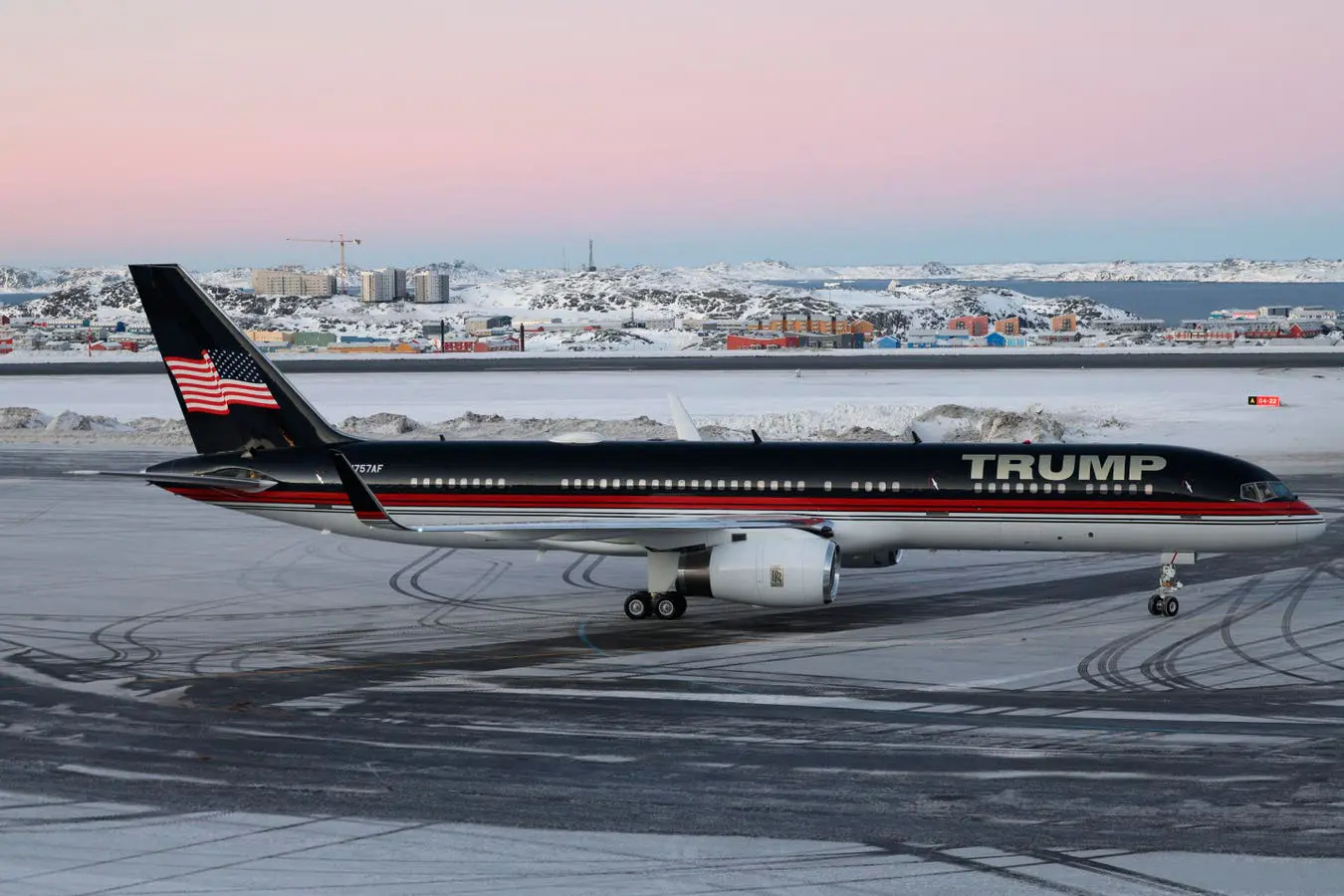
President-elect Donald Trump’s eldest son, Donald Trump Jr., arrived in Greenland Tuesday for a personal visit as Trump has renewed his suggestion in recent weeks that the Danish territory should become part of the U.S., one of several controversial territorial takeovers Trump has floated, often citing national security—though Denmark and Greenland have firmly rejected the idea.
Trump has floated buying the island for years. Trump wrote on Truth Social last month the U.S. should take control of Greenland “for purposes of National security and Freedom.” He also proposed the idea in 2019, telling reporters, “strategically it’s interesting” and calling the theoretical acquisition “essentially . . . a large real estate deal.” The Danish territory is home to the U.S. military’s Pituffik Space Base, and has become increasingly important on a geopolitical scale as melting ice in the Arctic Circle has opened new North Atlantic shipping lanes, drawing interest from U.S. rivals Russia and China. Arctic shipping increased 37% over the past decade, CNN notes, citing the Arctic Council, and the Northwest Passage—a shipping lane that connects the Atlantic and Pacific—passes by Greenland. The island is also part of the strategically important Greenland-Iceland-United Kingdom gap, a chokepoint that Russian ships must transit to travel from the Arctic Ocean to the Atlantic. However, as NATO members, the U.S. and Denmark are already closely aligned.
Greenland is thought to be home to a wealth of untapped mineral resources, including coal, zinc, copper, iron ore, diamonds and oil, though only small portions of the island have been explored, in part due to its harsh conditions as it’s predominantly covered by ice and glaciers.
Greenland is part of Denmark. The country’s links to the island—home to fewer than 60,000 people, most of whom are Inuit—stretch back centuries: Norse settlers arrived in the territory over a millennium ago before eventually disappearing, and Denmark began colonizing the island in the 1700s. Greenland now has representatives in the Danish parliament, and its local government has gained more autonomy to handle internal affairs in recent decades, though Denmark still controls its foreign relations. In recent years, a push for full independence has grown more prominent. Trump claimed in 2019 Greenland is “hurting Denmark very badly because they’re losing almost $700 million a year carrying it,” referring to Denmark’s financial assistance to Greenland.
No. Greenland became self-governed in 2009, and a change to its ownership or legal status would require an amendment to the Danish constitution, according to Reuters. Leaders in Greenland and Denmark have rebuffed Trump’s suggestions. Greenland’s Prime Minister Múte Egede said last month: “Greenland is ours. We are not for sale and will never be for sale. We must not lose our long struggle for freedom.” Danish King Frederik also changed the royal coat of arms earlier this month to more prominently feature a polar bear, representing Greenland, and a ram, representing the Faroe Islands—leading to some speculation the move was a subliminal message to Trump, though Greenland and Denmark have experienced heightened tensions in recent years as Greenland’s government has called for independence. The Danish royal household did not address suggestions that the changes were made in response to Trump, but said in a statement the three crowns symbolizing the union of Denmark, Norway and Sweden were replaced by the ram and polar bear because they were “no longer relevant,” The Guardian reported. Trump on Tuesday threatened “very high” tariffs on Denmark if it repels his efforts to buy Greenland and did not rule out using military or economic force to take control of the island. Leaders also strongly dismissed the idea of selling Greenland to the U.S. when Trump first made the suggestion in 2019. Danish Prime Minister Mette Frederiksen called it “an absurd discussion” at the time, and said, “I strongly hope that this is not meant seriously.” The comments prompted a public feud with Trump, who canceled a planned visit to Denmark over Frederiksen’s comments, which he called “nasty” and “inappropriate.”
Trump has also threatened to demand repossession of the Panama Canal, and facetiously suggested the U.S. should take ownership of Canada. Trump referred to Canada as “the 51st state” in a Truth Social post Monday after Prime Minister Justin Trudeau announced his plans to step down. Trump’s threat in November to impose a 25% tariff on Canada and Mexico has riled Canadian leaders, dividing Trudeau and his allies. Trump said Canada would “be TOTALLY SECURE from the threat of the Russian and Chinese Ships that are constantly surrounding them” if it joined the United States. Some Canadian politicians have dismissed the suggestion, with Ontario Premier Doug Ford jokingly suggesting Canada should buy Minnesota and Alaska. More seriously, Trump said last month he would demand the “Panama Canal be returned to us, in full, quickly and without question,” unless the Panamanian government met its “moral and legal” requirements,” reiterating his complaints that Panama charges the U.S. “highly unfair” fees for ships passing through the canal. The U.S. built the canal in the 20th century and maintained control of the territory surrounding it for decades, before transferring it to Panama starting in the 1970s. Panamanian President José Raúl Mulino dismissed the suggestion of ceding the canal in a video message, saying: “Every square meter of the Panama Canal and its adjacent area belong to PANAMA, and will continue to be.” Trump responded on Truth Social: “We’ll see about that,” and posted a photo of the U.S. flag over the canal with the text “Welcome to the United States Canal!”
Former President Harry Truman offered Denmark $100 million in gold in 1946 to buy Greenland amid heightened tensions between the U.S. and Soviet Union. Greenland sat between the two countries and was viewed as a potential battleground. The offer was “seen as a bit of an insult” to the Danish government, Florida State University professor Ronald Doel told The Washington Post.
The Way For President Trump To Get Greenland (Forbes)
Trump Says Canada Should Merge With U.S.—Trolling Trudeau As He Steps Down (Forbes)
Trump Says US Should Take Ownership Of Greenland And Threatens Panama Canal Takeover (Forbes)
